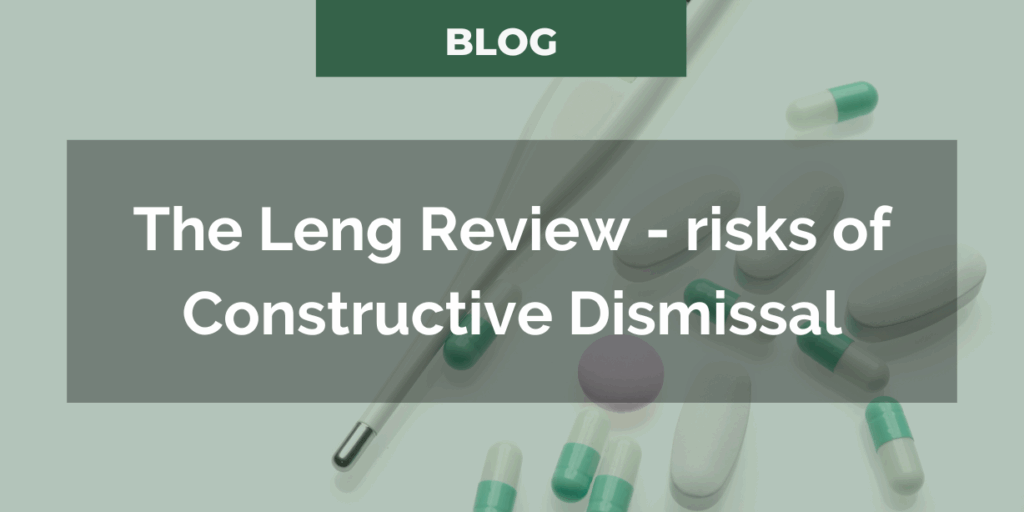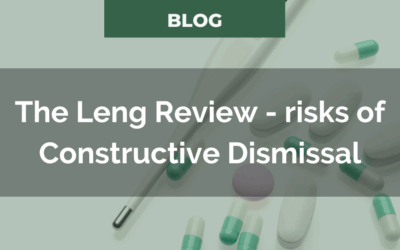General Guidance | Discrimination • October 5, 2018
Mental Health Part 4: Job Application Deception or Concealment
Written by Jennifer Ormond

People who suffer with mental health conditions are often too concerned about the stigma attached to it to disclose it to a new employer during the recruitment process. Today, we look at whether the employer has any grounds to allege that there has been a deliberate concealment of an illness?
The starting point for employers to bear in mind is that there is no legal obligation on job applicants to disclose any health conditions during the recruitment process.
The Equality Act 2010 generally prohibits employers from asking pre-employment health questionnaires about general health, unless they have reference to functions intrinsic to the role. For example, employers can ask drivers about epilepsy or their eyesight but it create problems to ask about their full medical history.
Asking employees about their full medical history might put employers at further risk of discrimination claims if they cannot justify why the applicant was unsuccessful on other grounds. Without a legitimate explanation, it would be fairly easy for applicants with disabilities to allege that they were not selected simply for that reason, given that they were asked about it.
Some jobs roles however, require that employees are well enough to carry out specific elements of the job and employers can ask about the relevant health conditions. If there is a contractual requirement upon an employee to disclose medical conditions which may affect their ability to do their job and the employee has concealed it, there is action you can take.
A deliberate concealment can mean that the contract is void if there was a requirement to disclose detailed within it. Further, an employer could rely on the employee’s dishonesty as a reason for dismissal, but might need evidence of their decision to hide their illness. Any dismissal on either of these grounds should still follow the ACAS Code of Practice on Disciplinary and Grievance Procedures to assist the employer to evidence that the dismissal is not based on the employee having a disability – but their dishonesty.
It is therefore imperative that during the recruitment and offer process, employers think about functions intrinsic to that job role which are impacted by certain health conditions. Further, the contract of employment should contain a clause within it which places an obligation on the employee to update the employer of any health conditions which make it no longer possible for them to carry out their job.
In light of previous blogs we have published on mental health, we also remind you that there may be further obligations to make adjustments to a role (where possible) or dismiss on the grounds of capability rather than trying to determine a contract as void or dismissing due to dishonesty.
You might also like…
Health & Safety Bingo! Compliance Made Simple (and Not Boring!)
Health & Safety Bingo is here to prove that compliance doesn’t have to mean boring manuals, endless tick-boxes, or confusing jargon. If you’ve got five or more staff, there are a few essentials you need to cover, but it can be simple, visual, and even a little...
The Leng Review and risks to your business
Major Changes to Physician Associate Roles Following Leng Review: What NHS Practices Need to Know The recent publication of the Leng Review has included recommendations which require significant changes, specifically around the role of Physician Associates. What...
Do I need to do a fire risk assessment?
Fire risk assessments are a fundamental legal requirement in the United Kingdom that could, to be blunt, be the difference between life and death. Understanding your obligations under UK fire safety legislation is crucial for anyone responsible for premises,...






